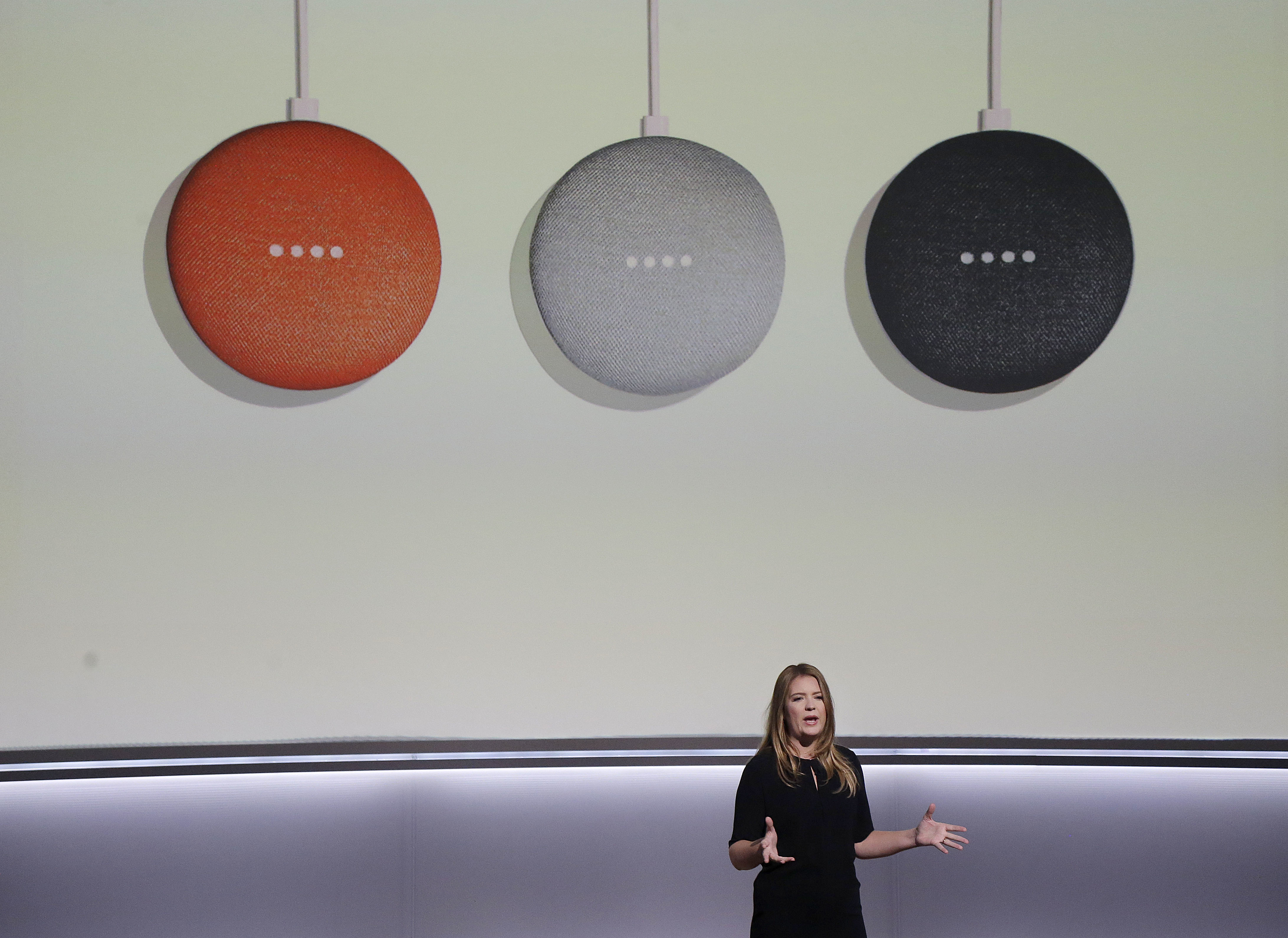Why big tech thinks voice control will conquer the world
Voice assistant technology could be the glue that holds smart home ecosystems together


Every year, a conspicuous theme emerges as the "new thing" in the tech world: drones, wearables, self-driving cars, whatever the latest trend is. But at this year's Consumer Electronics Show, the prominent trend was mostly invisible: voice control. It seemed like half the new products announced, whether they were TVs, kitchen appliances, or smart displays, all contained a voice assistant.
Perhaps this shouldn't be surprising. This holiday season, Amazon and Google in particular enthusiastically pushed their smart speakers — for Amazon, its Echo line, and for Google, its Home products — as it becomes clear that voice-based digital assistants are the next big frontier. But this year, Google is putting major marketing resources behind its digital helper. The marketing push was hard to ignore at CES. It's clear Google is taking aim at Amazon's Echo. The race to woo consumers is on.
But what value do these companies see in voice assistants? Right now, there isn't a robust advertising network on voice assistants, which means there is no ongoing revenue, and the hardware itself is sold with razor thin margins, especially since this December Google offered steep discounts. In other words, so far, no direct link exists between voice and money. However, companies know that voice assistant technology could be the glue that holds their smart home ecosystems together, and that makes it incredibly valuable.
Subscribe to The Week
Escape your echo chamber. Get the facts behind the news, plus analysis from multiple perspectives.

Sign up for The Week's Free Newsletters
From our morning news briefing to a weekly Good News Newsletter, get the best of The Week delivered directly to your inbox.
From our morning news briefing to a weekly Good News Newsletter, get the best of The Week delivered directly to your inbox.
Google's efforts to catch up to Amazon make more sense when you consider that, for users, the appeal of voice is straightforward: It simplifies technology that is otherwise becoming ever more complex. As Nilay Patel writes at The Verge, a lot of our technology is still too complicated for most people. Despite various design advancements, getting all our gadgets to work together seamlessly is still far too difficult. But voice changes that.
The primary advantage of voice is that it flattens how we interface with tech into one, familiar action: speaking. Currently, if you want to use a digital device, not only do you have to learn its interface, you also have to understand the quirks of each individual app: how to navigate a browser, or a music streaming player, and so on ad nauseum. But a smart speaker allows a user to skip all of that. Suddenly, playing a song or Googling something or turning up the thermostat comes down to little more than using natural language, something that has no learning curve. It's a significant change in usability and accessibility, especially for seniors, novices, and others who are often stymied by the sheer complexity of today's tech interfaces.
That ease of use has obvious user benefits. And considering that voice assistants are being put into just about everything, from fridges to TVs, it's obvious Amazon and Google are trying to further embed themselves in people's lives by spreading their voice assistants throughout the home.
Voice also locks users into a company's ecosystem. Amazon's Echo products let you order off Amazon's enormous e-commerce store or check on the status of your delivery. Google Home lets you add appointments to a calendar or tasks to a to-do list. Each work with their respective music streaming services — and this is just the tip of the iceberg.
What results is a kind of happy pressure to align one's tech life to one company's stuff — a trait that thus far, Apple has excelled at, but Google, Amazon, and others have struggled to replicate. But as voice assistants become the center of many tech companies' ecosystems, customers will have incentive to spend more money, whether on cloud storage or other smart home devices. The economic incentive is thus clear. Amazon is apparently looking into putting ads on its Echo devices, which means that Google — a company whose enormous revenue still comes predominantly from advertising — will soon follow suit, providing yet another revenue stream.
There's one more thing worth noting about the push for voice: Speaking to a digital assistant, especially when it has a name like Alexa or Siri, can produce a strangely emotional response — not quite affection, but a comforting familiarity. This kind of emotional response induces loyalty. And that, more than anything, is at the core of why Amazon, Google, and others are so focused on voice. After all, who are you more likely to invite into your home than a friend?
A free daily email with the biggest news stories of the day – and the best features from TheWeek.com
Navneet Alang is a technology and culture writer based out of Toronto. His work has appeared in The Atlantic, New Republic, Globe and Mail, and Hazlitt.
-
 How global conflicts are reshaping flight paths
How global conflicts are reshaping flight pathsUnder the Radar Airlines are having to take longer and convoluted routes to avoid conflict zones
-
 Zohran Mamdani: the young progressive likely to be New York City's next mayor
Zohran Mamdani: the young progressive likely to be New York City's next mayorIn The Spotlight The policies and experience that led to his meteoric rise
-
 The best film reboots of all time
The best film reboots of all timeThe Week Recommends Creativity and imagination are often required to breathe fresh life into old material
-
 The pros and cons of noncompete agreements
The pros and cons of noncompete agreementsThe Explainer The FTC wants to ban companies from binding their employees with noncompete agreements. Who would this benefit, and who would it hurt?
-
 What experts are saying about the economy's surprise contraction
What experts are saying about the economy's surprise contractionThe Explainer The sharpest opinions on the debate from around the web
-
 The death of cities was greatly exaggerated
The death of cities was greatly exaggeratedThe Explainer Why the pandemic predictions about urban flight were wrong
-
 The housing crisis is here
The housing crisis is hereThe Explainer As the pandemic takes its toll, renters face eviction even as buyers are bidding higher
-
 How to be an ally to marginalized coworkers
How to be an ally to marginalized coworkersThe Explainer Show up for your colleagues by showing that you see them and their struggles
-
 What the stock market knows
What the stock market knowsThe Explainer Publicly traded companies are going to wallop small businesses
-
 Can the government save small businesses?
Can the government save small businesses?The Explainer Many are fighting for a fair share of the coronavirus rescue package
-
 How the oil crash could turn into a much bigger economic shock
How the oil crash could turn into a much bigger economic shockThe Explainer This could be a huge problem for the entire economy
